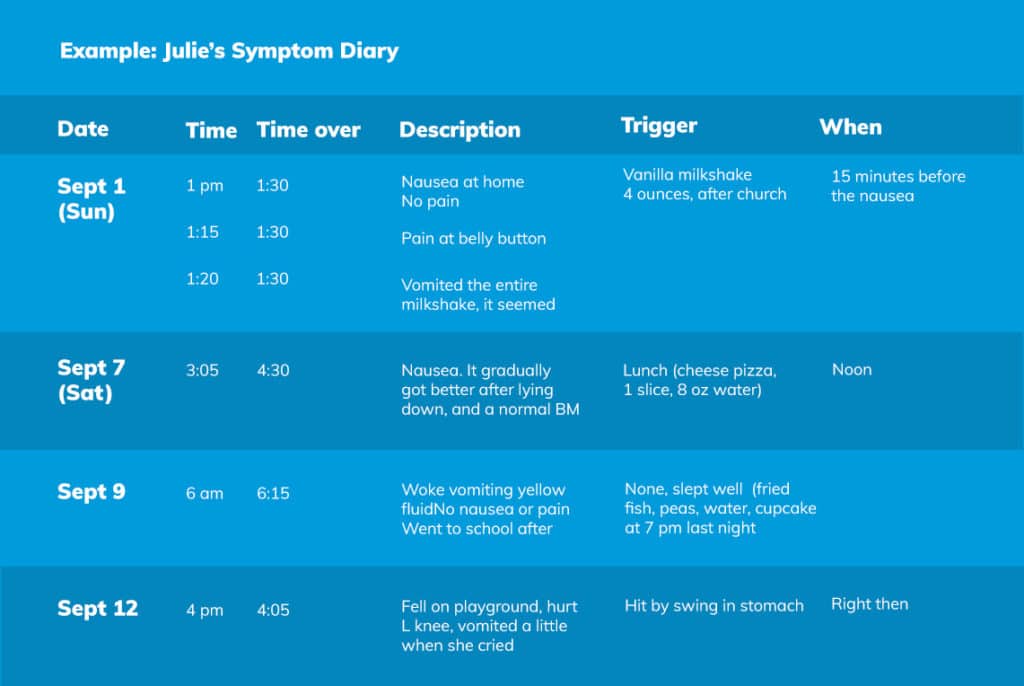
Keeping a symptom diary
Nutritional and gastrointestinal disorders are often mysteries. Doctors try to figure out what is causing the problem and then determine the best treatment plan. Parents can help by keeping a symptom diary for their child. If the child is old enough and capable, have your child share his symptoms with the doctor.

A symptom diary requires close attention and record keeping. Parents usually remember when and how their child's problem began, but additional information can be very helpful.
The Child With a Tummy Ache
If your child has frequent abdominal pain – what should you look for?
- Where is the pain? Top, where the stomach sits? On her lower right side, near the appendix? Or on the left, down by the lower intestine? Is it always the same place? Does it start one place and move?
- How long does it last? Seconds, minutes, hours?
- How often is the pain? Has it changed (was it once a month and now every day)?
- How bad is it? Enough to cause tears? Wake her at night? Cause her to stop eating or playing?
- Does it get better or worse over time?
- Does anything trigger the pain or that change? Eating, drinking, pooping, peeing, movement, stress? Any particular foods? Which ones? It may not be the same food, but there could be a pattern. Can the child eat those same foods other times without developing symptoms?.
- Does anything happen along with the pain (nausea, diarrhea or a headache–if so, does it have the same pattern or a different one)? If she's vomiting, what's coming up (food, fluid, bile, blood)? Has there been a change in appetite, weight, bowel movements?
- Anything else you notice? Joint pains, fever, a rash?
Use the Nutrition4Kids symptom diary, or keep detailed notes on a calendar.
Example: Julie's Symptom Diary

Obviously, all of these problems aren't related–or at least, the incident on the playground isn't, but the others might be and probably are. The chart presents a clear picture that can help the doctor find and treat the problem.
Bring your diary to your doctor along with a list of :
- child's current allergies, medications and diet
- child's past medical history (other illnesses, surgery, testing, special needs)
- family medical history
- social history (school, activities, pets, recent travel, exposures like swimming in a nearby lake, stress factors, illnesses among family or friends)
- any other concerns
Presenting everything as completely as possible will lead to clear understanding of the condition. Any testing that's needed can help confirm the condition and the treatment plan.




